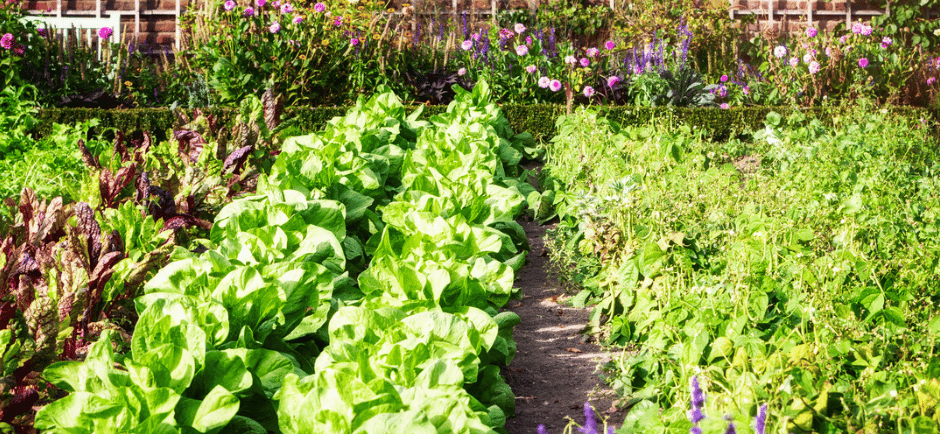Cultivating Community: The Garden as a Metaphor
Gardens feed us and can bring both connection and an appreciation of the diversity reflected there. The community garden provides the foundation of relationship and community!
COMMUNITY
Mark Boatwright-Frost
9/27/20245 min read


The Garden as a Reflection of Humanity
Gardens have long been emblematic of the intricate relationship between humanity and nature. They serve not only as spaces for cultivating plants but also as environments nurtured by the connections formed within the human experience. When one considers the essence of a garden, it becomes evident that it goes beyond mere horticultural practice; it symbolizes growth, care, and community. Just as plants require sunlight, water, and soil to flourish, so too do relationships need attention, understanding, and nurturing to thrive.
A flourishing garden can be paralleled with a thriving community, reflecting the idea that both rely heavily on interconnectedness. Each plant within a garden contributes to the ecosystem's health; similarly, every individual in a community plays a critical role in fostering a sense of belonging. For instance, community gardens serve as microcosms where diverse people come together, share resources, and build relationships. They often become places where friendships blossom, knowledge is shared, and support systems are established. The act of working together in a communal space allows individuals to strengthen their ties and cultivate a deeper sense of belonging.
Furthermore, the cyclical nature of gardening—planting, nurturing, and harvesting—illustrates the importance of patience and resilience in building connections. Just as gardeners must adapt to varying weather conditions to ensure their plants thrive, people must navigate challenges in relationships to foster community growth. This synergy between nurturing nature and nurturing bonds underlines the significance of community-building efforts in creating a sustainable future. By recognizing gardens as symbolic of our connections, we gain valuable insights into the ways we can cultivate both the natural environment and our relationships, ultimately leading to enriched lives and stronger communities.
Planting the Seeds of Connection
Initiating connections within our communities can be likened to the delicate act of planting seeds in a garden. Just as a gardener meticulously selects and nurtures seeds to ensure robust growth, individuals must engage in intentional actions that foster relationships and enhance community bonds. The act of reaching out to neighbors, for instance, cultivates a sense of familiarity and mutual support. Simple greetings or invitations to share a meal can open avenues for deeper interactions, establishing essential connections that enrich the community fabric.
Moreover, forming community groups serves as a pivotal step in this growth process. These organizations provide a structured environment where individuals can collaborate on local projects or initiatives that promote social cohesion. Whether it is through a book club, a cleanup crew, or a sports league, these gatherings forge connections based on shared interests and collective goals. Participants experience a sense of purpose while also contributing to the well-being of their neighborhoods.
Participation in local events represents another powerful method of fostering connections. Community festivals, farmers' markets, or cultural celebrations not only provide entertainment but also present opportunities for residents to engage with one another. Such events cultivate a spirit of belonging, as individuals come together to enjoy diverse experiences. Each small interaction at these gatherings plants metaphorical seeds which can blossom into lasting friendships and partnerships, thus contributing to a thriving community.
In essence, the practice of intentionally initiating connections reflects the nurturing required in gardening. By engaging in simple acts of kindness and seeking common ground, we create a robust network of support and cooperation within our communities. Each action, no matter how modest, has the potential to ignite growth, ultimately leading to a flourishing environment where everyone can thrive together.
Nurturing and Caring for Relationships
Nurturing relationships within a community is akin to cultivating a flourishing garden; both require ongoing commitment, attention, and care. Just as plants need adequate sunlight, water, and nutrients to thrive, interpersonal connections also depend on effective communication, support systems, and empathy. Understanding the dynamics of relationships is crucial for fostering an environment where individuals feel valued and connected.
Effective communication serves as the foundation for healthy relationships. Open dialogue allows community members to express their thoughts and feelings, promoting transparency and trust. When individuals are encouraged to share their experiences, they cultivate a sense of belonging that strengthens the community's bonds. Establishing regular communication channels can enhance this process, ensuring that everyone is informed, involved, and heard.
Support systems play an equally vital role in nurturing relationships. Just as gardeners must provide proper care to each plant, community members must extend support to one another during challenges and celebrations alike. A strong network of support not only fosters resilience but also encourages individuals to invest time and effort into their relationships. By being present, offering assistance, and celebrating achievements, community members can cultivate a positive atmosphere that promotes collaboration and unity.
Empathy is another essential component in nurturing relationships. Understanding the feelings and perspectives of others creates deeper connections and fosters inclusivity. Encouraging empathy within a community resonates similarly to planting seeds that will eventually grow into strong roots. By considering the experiences and emotions of others, individuals are more likely to build trust and respect, which ultimately leads to enriched relationships.
In conclusion, nurturing relationships within a community requires continuous effort and engagement. By prioritizing effective communication, establishing supportive networks, and fostering empathy, communities can create an environment where relationships thrive, ultimately leading to resilience and interconnectedness. Just as a well-tended garden flourishes, so too do vibrant and strong communities built on enduring connections.
Harvesting Together: Sharing the Fruits of Our Labor
In any thriving community, the spirit of collaboration can be likened to the harvest season of a well-tended garden. Just as a gardener tends to the plants, nurturing them with care and attention, members of a community work together to cultivate relationships and share resources. This collective effort not only results in tangible benefits, such as shared knowledge and skills, but also fosters a sense of belonging and interconnectedness among individuals.
Collaborative endeavors allow communities to pool their resources and talents, enhancing the effectiveness of their initiatives. For instance, workshops organized by community members can facilitate the exchange of ideas and expertise. Such interactive sessions enrich participants, as they learn not only from instructors but also from each other. The beauty of this sharing is that it creates an environment where no one is left behind; everyone contributes to and benefits from the collective harvest. This underscores the notion that sharing knowledge and experiences can lead to communal growth, mirroring the way gardeners share their harvests with neighbors.
Moreover, the cyclical nature of communities is inherently tied to the practice of passing on skills to future generations. Elders within a community often hold valuable wisdom that can guide younger members. By transferring knowledge and experiences, they ensure that the community does not merely thrive in the moment but continues to flourish. This lineage of knowledge ensures a stable foundation for future growth, just as seeds planted in a garden yield future crops. The joy derived from seeing others benefit from your efforts and expertise creates a deep sense of satisfaction, reinforcing the idea that collaborative endeavors yield lasting rewards.
The act of sharing in a community symbolizes not only the fruits of collective labor but also the commitment to nurturing connections that sustain growth. By embracing the cyclical, collaborative nature of community life, individuals contribute to an ecosystem where everyone has a role to play, ensuring a bountiful harvest for generations to come.
Thoughts on a human future ~Mark Boatwright-Frost
The Resilient Community Movement
In today's ever-changing world, the importance of fostering resilience within neighborhoods and communities cannot be overstated. By facilitating connections among residents, we empower individuals to share their stories and experiences, creating a strong support network. This collaborative spirit not only enhances the well-being of community members but also amplifies their voices, ensuring that their unique human needs are recognized and addressed.
Contact and Connect
info@reseco.org
© 2024. All rights reserved.
